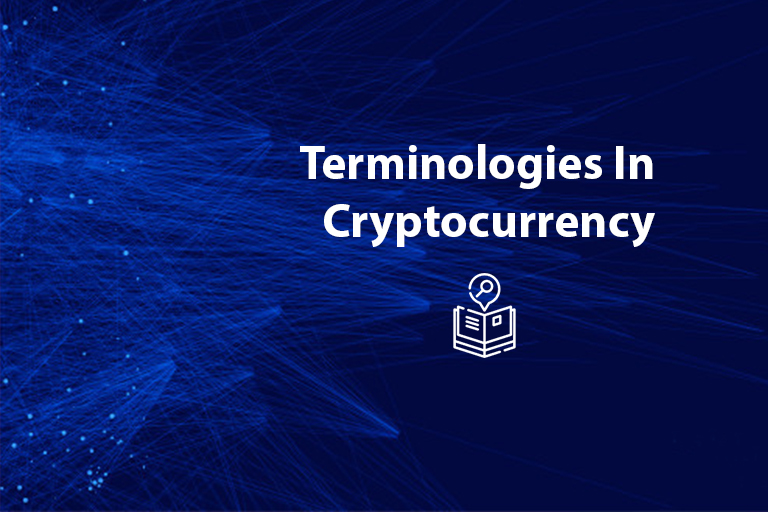These are most of the common cryptocurrency terms and acronyms used in the industry and should help to give a new investor a better understanding of the market.
Here’s a comprehensive list of the most common cryptocurrency terms and acronyms:
1. Address
This is a series of letters and numbers, Addresses consist of between 26 and 35 characters and represent a unique wallet ID on the blockchain, much like your account number. They’re used when conducting transactions on the network, including the receipt, remittance, and storage of cryptocurrency. it does not consist of any individual personal details nor name.
2. Altcoin/s
Altcoins is coined from the term Alternative Coin. It usually refers to any cryptocurrency coin other than Bitcoin, which was the original cryptocurrency. There are over 1,000 other cryptocurrencies in the market.
3. Blocks
These are packages of permanently-recorded data on the blockchain network. The Genesis Block describes the very first block in any blockchain.
4. Bear/Bullish Trends
When the price of a cryptocurrency has a positive(upward) price movement, It is called a Bullish Trend
When the price of a cryptocurrency has a negative(downward) price movement, it is called a Bearish Trend
5. Confirmation
When a transaction has been verified by miners and added to the blockchain, it receives a confirmation.
6. Fiat or Fiat Currency
– A fiat currency is any currency that’s issued by a government or the central bank. Na our day to day money – money recognized as legal tender by governments, such as the US dollar, British pound, Euro and Australian dollar, Nigerian Naira etc.
7. Hash
– A hash is a function that converts an input of letters and numbers into an encrypted output of a fixed length. A hash. Is created using an algorithm and is essential to blockchain management.
8. Hash Rate
– This is simply a general measure of the processing power of the Bitcoin network.
9. Mining
– Just like every other currency, Cryptos don’t grow on trees but they aren’t printed like traditional currencies – they are MINED by miners. This process uses computer hardware to solve complex mathematical problems and decrypt hashes. Miners are rewarded for their work with cryptocurrency coins.
10. Moon
– When a cryptocurrency coin goes on a market run and drives the price up quickly, it’s referred to as mooning.
11. Private & Public Key
– A public key is a wallet address that can be shared with other parties to effect transactions. Private key is the key – or password – which unlocks a wallet, It shouldn’t be shared with anyone.
12. Pump & Dump
– This is a form of market manipulation by traders who artificially inflate prices and then exit the market, thus causing a collapse in the price.
13. Volatility
– Market or price volatility refers to the movement in the price of a cryptocurrency over time. The fluctuation in an asset’s price is measured by its volatility. Cryptocurrency prices are notoriously volatile compared to other assets, as dramatic price shifts can happen quickly.
The cryptocurrency market typically experiences wild swings between high and low prices – bulk of money lies here
14. Wallet
– In the cryptocurrency sector, a wallet is a digital address used to store coins or tokens. It can be used to send and receive these items during cryptocurrency transactions.
15. Exchange
– The platform (websites or apps) through which cryptocurrencies are exchanged with each other, with fiat currencies and between entities – where you can buy and sell cryptocurrencies for profit. Exchanges can vary widely in the currency conversions they enable and their fee structures. Some popular exchanges are Binance, BitForex, HitBTC, CoinEx to mention but a few.
16. Transaction and Transaction Fees
– Transaction is the value of cryptocurrency moved from one entity to another on a blockchain network while Transaction fees are usually very small fees given to the miners involved in successfully approving a transaction on the blockchain, this fee can vary.
If an exchange is involved in facilitating that transaction, it could also take a cut of the overall transaction fee.
17. FOMO (fear of missing out).
Making a drastic irrational decision, because you don’t want to miss out on profit.
Please add more popular ones we missed out on in the comment section below 🙂


